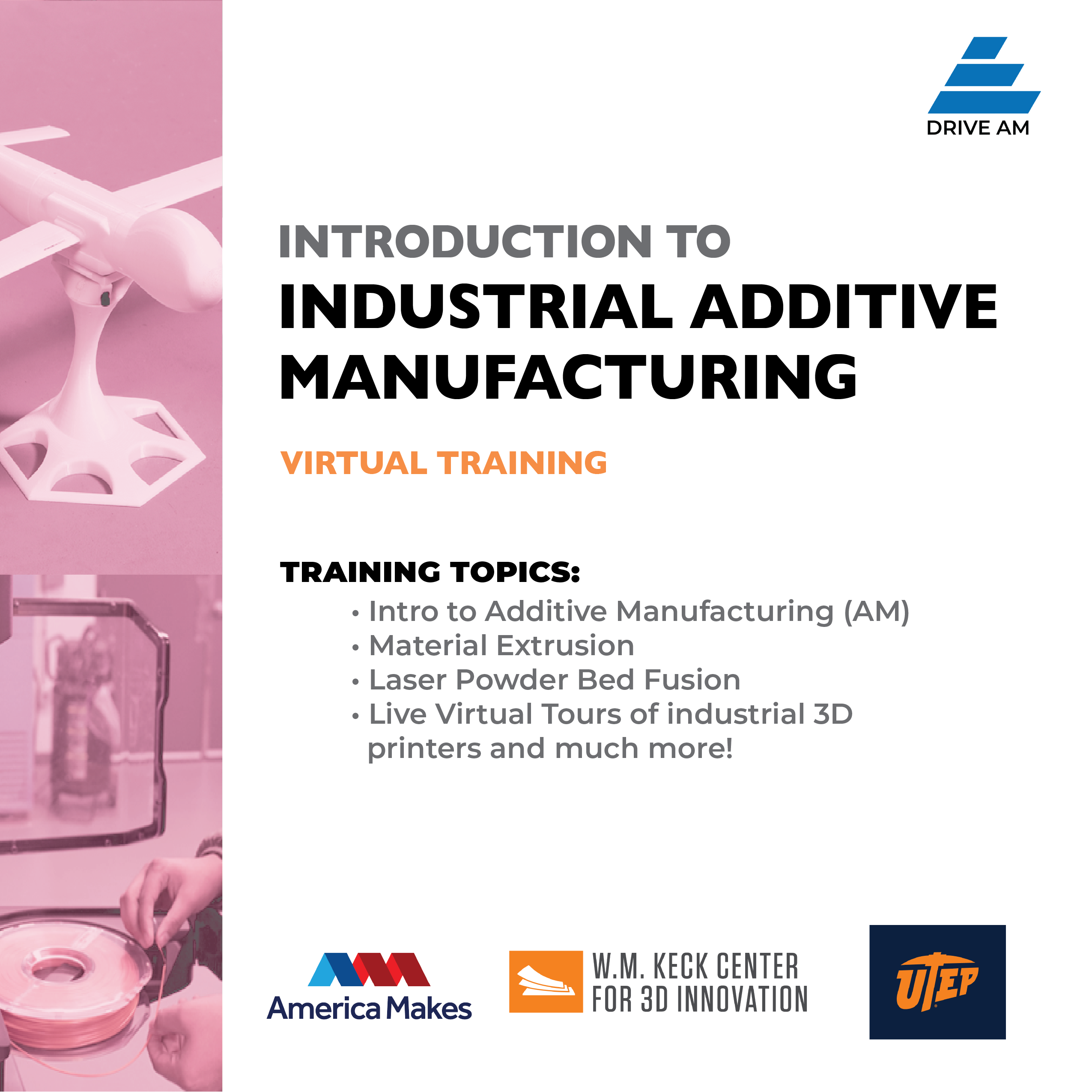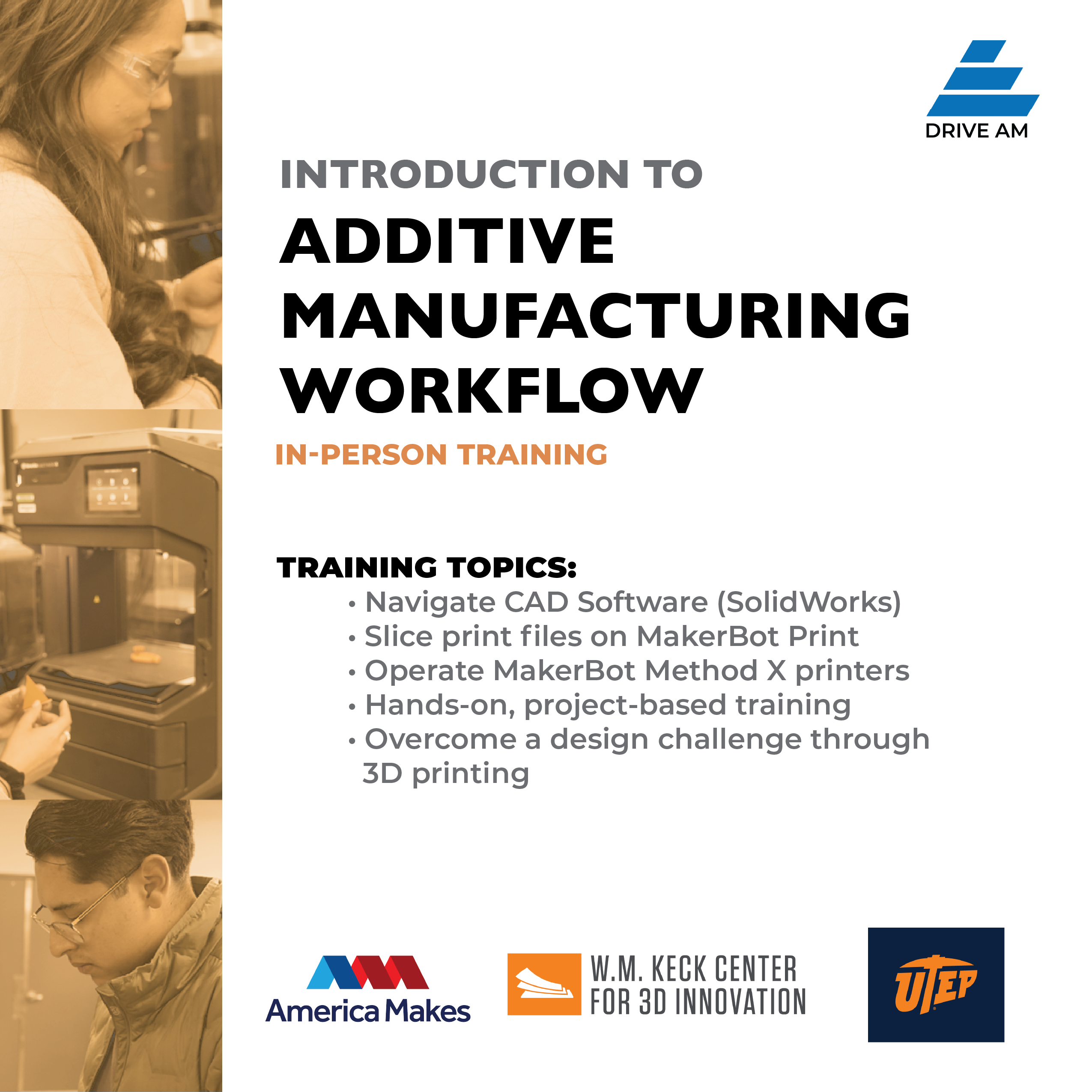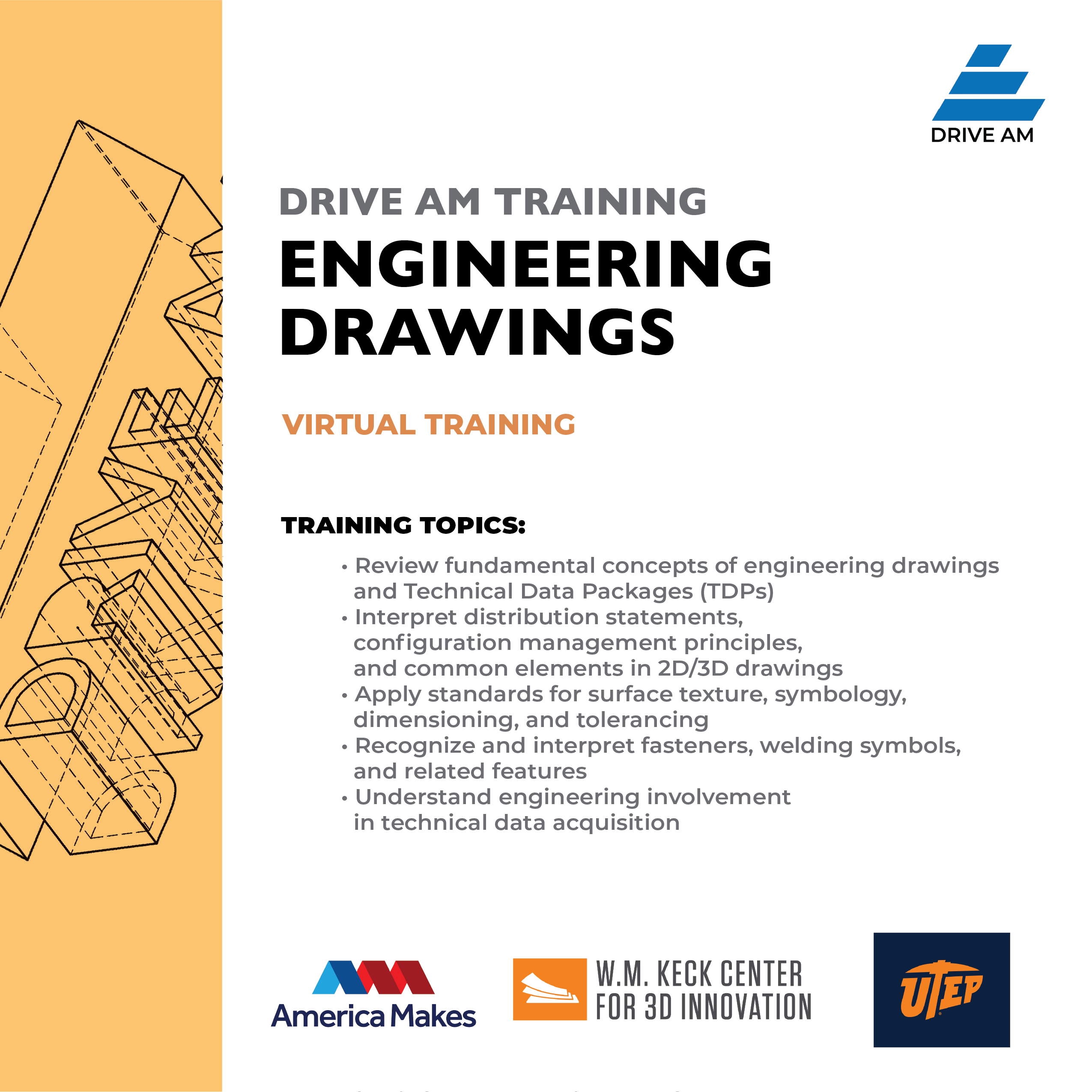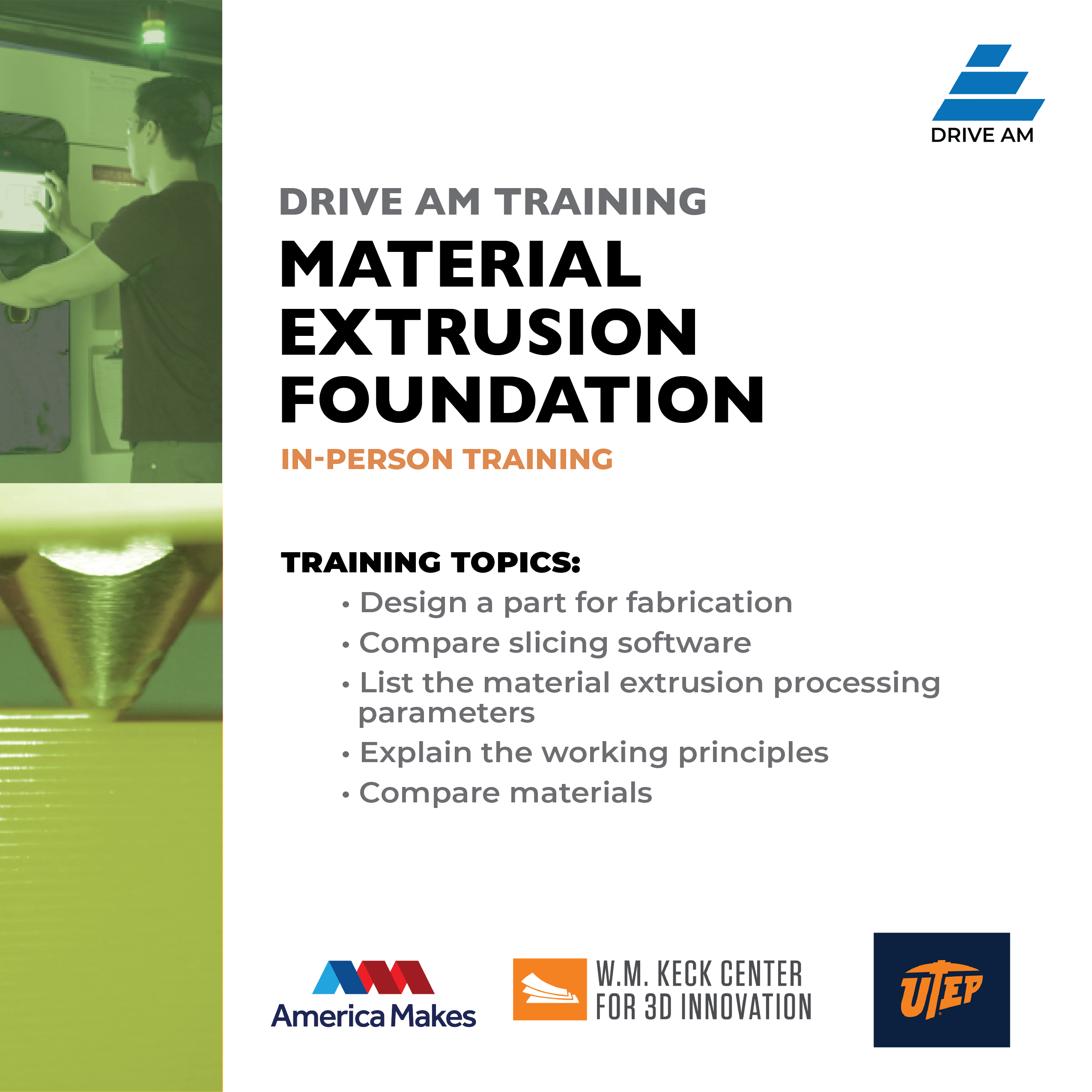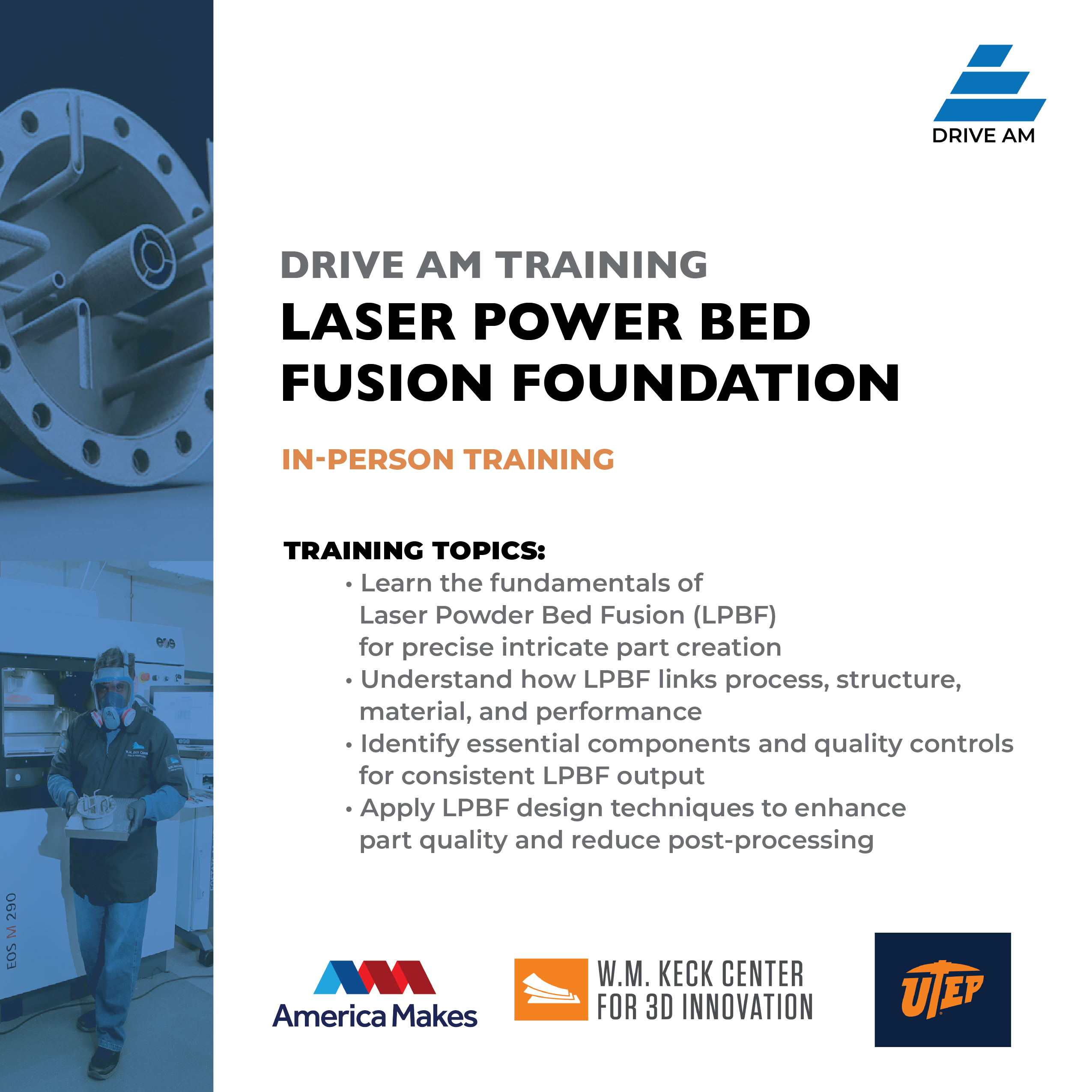Introduction to Industrial AM: MEX and LPBF
3-Day Virtual Training
50 spots
This course will:
- Identify the seven process categories of Additive Manufacturing (AM)
- Understand the AM workflow (design, fabrication, post processing, etc.)
- Learn the benefits and limitations of AM
- Understand reverse engineering and 3D scanning basics
- Identify the major components of a Stratasys Fortus 900 mc and have a general understanding of the working principles of the machine
- Identify the major components of an EOS M290 industrial printer and have a general understanding of the working principle of the machine

